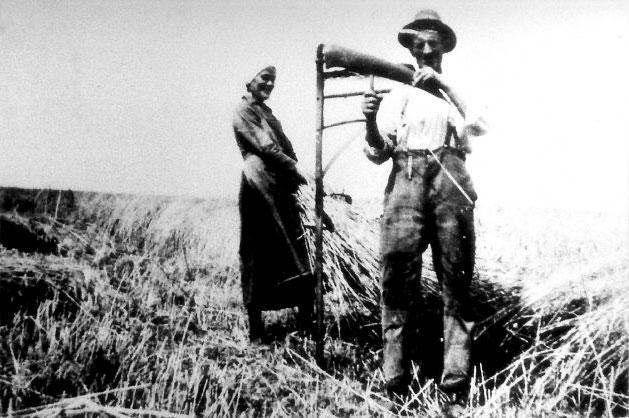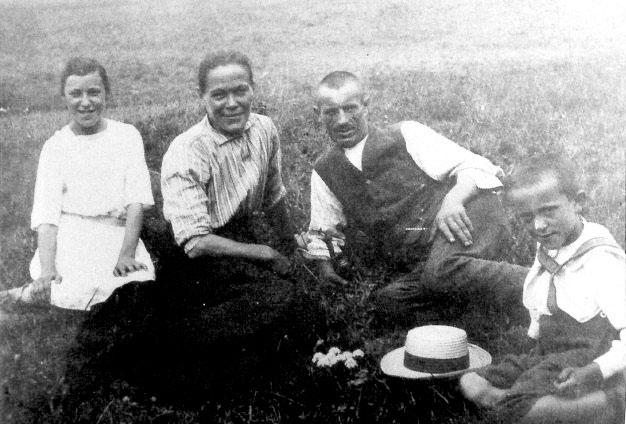"I felt sorry for him"
Heinrich (b. 1882) and Maria List (b. 1881), were Catholic farmers who lived in the predominantly Protestant village of Ernsbach in Hesse, where Maria had been born. Their son was a soldier at the front.
One morning, sometime in the middle of November 1941, Ferdinand Strauss appeared at the List home and asked for refuge. The Lists had known the Jewish Strauss family through business contacts from before the war, and Ferdinand had come to their home seeking for help. The deportations from Germany to the east had begun in mid-October, and he felt that he was in danger. When Ferdinand arrived at their home, Heinrich was working in the fields, but Maria did not hesitate and took the young man in. They harbored Strauss in their household until March 16, 1942, concealing his presence from the police and other village residents.
In March 1942, Heinrich List became embroiled in a quarrel with his Polish worker, and the latter denounced him to the Nazi village mayor. The local gendarmerie started an investigation, and interrogated the elderly couple. Strauss was more fortunate – he managed to escape in time, and was able to cross the border to Switzerland. After the war he emigrated from Europe and died in New York in 1983.
After first denying the charges, Maria List broke under pressure and confessed to the police. Questioned about his motives for hiding Strauss, Heinrich List reportedly said: “It was merely that I felt sorry for him and let him stay because we knew him very well in the past and had good business relations with him.” List was arrested and sent to Dachau concentration camp. On October 10, 1942, his wife received an official letter from the camp commandant notifying her that her husband had died in the camp hospital on October 5. The camp doctor stated that death was caused by an infection in his lower leg. As customary, his remains had been cremated. This was part of the camp authorities common practice to conceal the real cause of death. To compound the widow’s tragedy, almost two years later she received another shattering message: the Lists’ only son, Jakob, was reported missing in action on the Russian front in August 1944.
Yad Vashem learned of the story of the farmer couple through the efforts of students and teachers at the Michelstadt High School. They investigated it in the framework of a special educational project concerned with the study of the Nazi past and documented the story of the farmer couple who did not hesitate to hide a Jew persecuted by the Nazi State, while their son was fighting at the front for this very same state.
On December 23, 1992, Yad Vashem recognized Heinrich and Maria List as Righteous Among the Nations.


